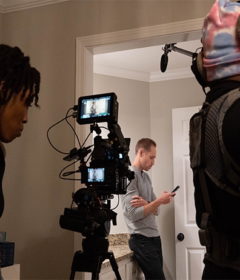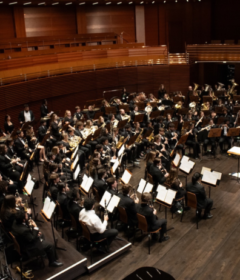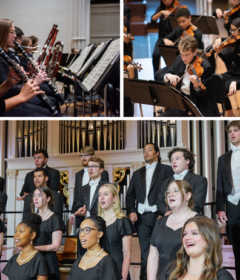Musician-producer Nagaris Johnson presents Charles White series talk Monday, April 19
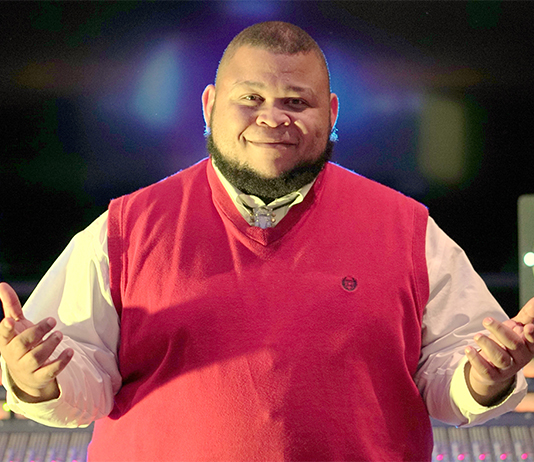
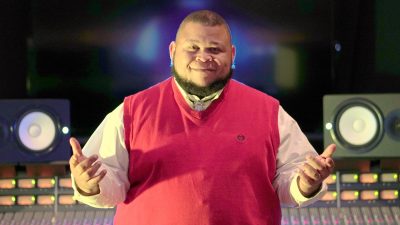
Photo / Ontario Mireles
Musician, songwriter and engineering producer Nagaris Johnson says he plays four instruments: piano, drums, tuba “and a lot of music programs – the computer is an instrument of mine.”
Johnson, who is Department Chair of Recording Arts at MediaTech Institute in Dallas, will present the final virtual talk of the Spring 2021 Dr. Charles White Speaker Series at 5 p.m. April 19.
Attendees should complete the pre-registration form at least one hour before the start of the talk. Anyone without a Stetson email address should email [email protected] by 2 p.m. on the day of the event to receive the Zoom link. Cultural credit is available. Talks will be digitally archived and viewable on Vimeo.
Johnson earned an Associate of Recording Arts degree from MediaTech Institute, an Associate of Science degree from North Central Texas College, and a BA in Art and Technology from the University of Texas-Dallas. As a recording engineer, he has worked with the Grammy-winning band Brave Combo and platinum-selling hip-hop artist Lil’ KeKe, and he received a gold record for his work on Quavo’s solo album “Quavo Hunco.” Johnson also won the 2019 John Lennon Songwriting Contest in the gospel category for his song “Unity.”
Growing up in the small town of Mansfield, Louisiana, Johnson wanted to play football in middle school, but his mother said no, “so she let me be in the band,” he says. He wanted to play saxophone, “but once my mom found out the price tag, she said, ‘Nah, you can’t play that.’ ”
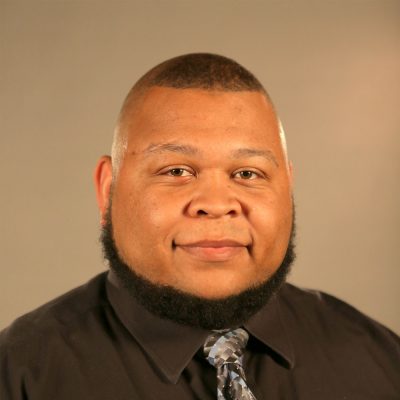
Photo / Weston Harris
However, the school provided tubas for free, “and that was my journey into music,” Johnson says. “I started playing the tuba and once I learned the language of music, this whole new world unlocked in my mind.”
Johnson and his friend Damien Heard were heavily influenced in the late 1990s by the hip-hop scene coming out of New Orleans. They asked their high school band director to add rapper Juvenile’s “Back that Thang Up” to their repertoire. The director agreed – if they would write out the sheet music to the hit song. They did.
But, Johnson says, “the business side of the hip-hop industry was the main influence, the independent side. We decided we could start our own record label, and I would be the producer for all of the artists on the roster.”
The duo lacked quality recording equipment, so they used a karaoke machine with two microphone inputs.
These days Johnson’s website, nagaris.com, and his conversation are peppered with such concepts as “immersive audio,” augmented reality, AI (artificial intelligence) plug-ins, ADR (automated dialogue replacement, used in film and video game production) and Pro Tools, the audio production software that allows him, he says, to “turn sounds into objects.”
However, such staggering innovations in music technology haven’t dwarfed Johnson’s passion for old-school music-making.
“I write songs all the time,” he says. He also holds what he calls “Saturday cook-ups”: three hours in the studio with his students and “creatives” not in his classes — singers, lyricists, musicians, songwriters, producers, programmers and composers.
“We have a finished project in three hours,” Johnson says. “For the students, it reinforces the teachings we’ve gone over during the week. It’s like science lab.”
Johnson doesn’t fear technology may overshadow music’s human side.
“In the earlier days, the music sounded robotic – it was just too perfect,” he says. “Now I feel we are humanizing the technology. For instance, we are now capturing live instrumentation again versus just playing everything digital, and taking the recording and dropping in samples. We’re going to have VR (virtual reality), things like that, intertwined with the music. The younger generation utilizes these tools at will and they’re not hindered by past thinking. We’re in for a wild ride to come.”
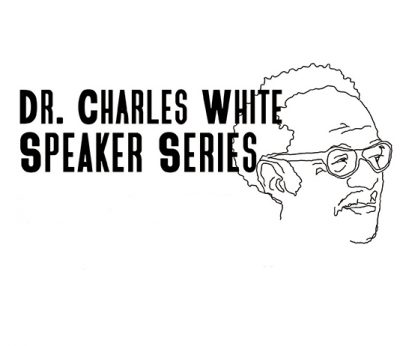
For his Stetson presentation, Johnson will delve into tech talk about augmented reality and immersive audio, “but I really want to focus on the story, on coming from a small town with a population of 5,000 people where the majority live below the poverty line, to taking a journey and working with some of the biggest artists in the world,” he says. “I want to inspire people.”
Johnson’s talk is part of the Dr. Charles White Speaker Series, founded by the Creative Arts Department Anti-Racism Committee for Equity, whose mission is “to advance equity for and inclusion of historically underrepresented ethnicities and races” in the creative arts at Stetson.
— Rick de Yampert

